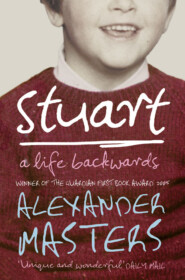По всем вопросам обращайтесь на: info@litportal.ru
(©) 2003-2024.
✖
A Life Discarded: 148 Diaries Found in a Skip
Настройки чтения
Размер шрифта
Высота строк
Поля
Twenty minutes later, the librarian returned carrying a thick folder. She let it slide down her forearm and wallop onto my table. In her other hand she held a thin booklet, which she handed to me.
‘That’s what you need to read first to solve your mystery. It begins four hundred million years ago.’
It was entitled Whitefield, Hinton Way, Great Shelford: An Archaeological Evaluation.
Four hundred million years ago, Britain was covered by a shallow ocean. The Peak District was an archipelago of islands. Snowdonia had the climate of Hawaii. Everywhere, this mass of water was filled with ammonites the size of small cars. Then the volcanic arrival of Iceland pushed Scotland up in the air; Africa crashed into the Mediterranean and Britain became dry and rippled. Whitefield got its name because it sits on a ripple that is made of old shellfish. At the back of the house is a disused quarry, where the clunch – a poor-quality limestone – was dug out to supply building materials for the field workers’ cottages in nearby Shelford.
Whitefield House is one of the most expensive properties in Cambridge.
It’s so exclusive, it’s invisible. The chunky Cambridgeshire Collection folder contains a sales brochure from 1974 which reveals that the property has an indoor swimming pool, a conservatory, a ‘games room’, an entrance lobby, a clunky attempt at a baronial staircase, a library, eight bedrooms, and is decorated throughout in pop-star green and silver. The drive leading up to the house runs for a quarter of a mile through an avenue of limes. The building sits on top of a hill, in the middle of twenty-four acres of woodland, just to the south of Cambridge. If it weren’t blinded by the trees that surround it, it would have a stunning view. Look out of the train as you pull away from Shelford station to begin the final surge into Cambridge and you can briefly spot the delicious place, disappearing behind you: it’s about halfway up the right-hand window, an uneven canopy of oaks and cigar-shaped specimen trees that push above the leaves like Gherkin Towers. Nothing of the house can be seen. Whitefield House isn’t listed in the modern telephone directory; it’s too posh to hear as well as to see. The fancy foliage sits morose and fat on top of the hill. It’s a suitable place for a retired Prime Minister.
The fields to the left of the woodland slope gracefully down, and up again – another copse here, with two houses cut back into the trees – and down, alongside the train tracks to the incinerator tower of Addenbrooke’s Hospital.
After that, with a thud, Cambridge.
‘You’ve found yourself a proper mystery here,’ said the archivist. ‘Your woman may have been thrown in a skip after she died, but if this place is anything to do with her, she certainly didn’t begin that way.’
When I got back from the library I sent a postcard to Whitefield House. There was no reply. Two weeks later, driving back from London and slightly irritated, I decided to call unannounced. I pulled off the motorway and drove along the old London road that runs into Cambridge from Linton, the village where my parents first rented a house when they arrived in England in 1966. I was in the mood for ancestors.
As you approach the city from this side, it’s a surprise to discover that it is made from trees. Recognisable buildings – the University Library tower, the chapel spires of King’s and Jesus, the hump of the Anglo-Saxon castle in the north of the city – emerge from the canopy like islands.
In the far distance I could just make out the tower of my own college, St Edmund’s, where I had gone as a distinctly second-rate mathematics student, as a graduate. It was where I first met Dido, and next-door to where she and Richard had discovered the diaries.
The ridge supporting Whitefield is south of Cambridge. A quarter of a mile before you hit the city, a road turns left along Hinton Way. It rises gently, cutting a diagonal slice past a row of furtive bungalows that look as though they’re slouching up to the woods for a booze-up. I pulled over beside a farm gate. I was only a few hundred yards from Whitefield House.
Вы ознакомились с фрагментом книги.
Приобретайте полный текст книги у нашего партнера:
Приобретайте полный текст книги у нашего партнера:







